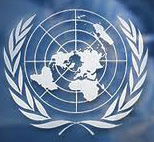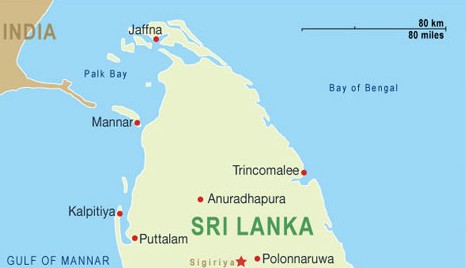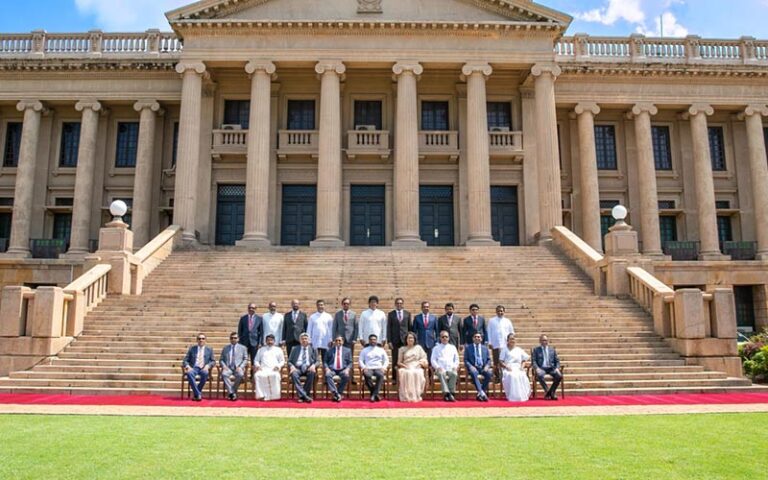 The United Nations failed in its mandate to protect civilians in the last months of Sri Lanka’s bloody civil war, a leaked draft of a highly critical internal UN report says.
The United Nations failed in its mandate to protect civilians in the last months of Sri Lanka’s bloody civil war, a leaked draft of a highly critical internal UN report says.
The United Nations failed in its mandate to protect civilians in the last months of Sri Lanka’s bloody civil war, a leaked draft of a highly critical internal UN report says.
“Events in Sri Lanka mark a grave failure of the UN,” it concludes.
The government and Tamil rebels are accused of war crimes in the brutal conflict which ended in May 2009.
The UN does not comment on leaked reports and says it will publish the final version.
The 26-year war left at least 100,000 people dead. There are still no confirmed figures for tens of thousands of civilian deaths in the last months of battle. An earlier UN investigation said it was possible up to 40,000 people had been killed in the final five months alone. Others suggest the number of deaths could be even higher.
Continue reading the main story
Former senior UN official Charles Petrie, who headed the internal review panel, told the BBC the “penultimate” draft the BBC has seen “very much reflects the findings of the panel”. He is now in New York to present the report to the UN Secretary General Ban Ki-moon.
Sources say a brief executive summary, which sets out the panel’s conclusions in stark terms, has been removed in a final report which will number about 30 pages, with additional detailed annexes.
UN spokesman Martin Nesirky told the BBC the UN does not comment on leaked reports. He said a final version would be published once the secretary general had received and read it.
Senior UN sources say Ban Ki-moon is determined to act on its wide-ranging recommendations in order to “learn lessons” and respond more effectively to major new crises such as Syria now confronting the international community.The UN’s investigation into its own conduct during the last months of the conflict says the organisation should in future “be able to meet a much higher standard in fulfilling its protection and humanitarian responsibilities”.
It points to a “systemic failure”.
The panel questions decisions such as the withdrawal of UN staff from the war zone in September 2008 after the Sri Lankan government warned it could no longer guarantee their safety.
Benjamin Dix, who was part of the UN team that left, says he disagreed with the pullout.
“I believe we should have gone further north, not evacuate south, and basically abandon the civilian population with no protection or witness,” Mr Dix told the BBC.
“As a humanitarian worker, questions were running through my mind ‘what is this all about? Isn’t this what we signed up to do?'”
Hundreds of thousands of Tamil civilians remained in the war zone, exploited by both sides: forcibly recruited by Tamil Tigers or used as human shields; or under indiscriminate government fire.
The United Nations failed in its mandate to protect civilians in the last months of Sri Lanka’s bloody civil war, a leaked draft of a highly critical internal UN report says.
“Events in Sri Lanka mark a grave failure of the UN,” it concludes.
The government and Tamil rebels are accused of war crimes in the brutal conflict which ended in May 2009.
The UN’s former humanitarian chief, John Holmes, has criticised the report.
Mr Holmes said the UN faced “some very difficult dilemmas” at the time and could be criticised for the decisions it had taken.
“But the idea that if we behaved differently, the Sri Lankan government would have behaved differently I think is not one that is easy to reconcile with the reality at the time,” he told the BBC’s Newshour programme.
The UN does not comment on leaked reports and says it will publish the final version.
The 26-year war left at least 100,000 people dead. There are still no confirmed figures for tens of thousands of civilian deaths in the last months of battle. An earlier UN investigation said it was possible up to 40,000 people had been killed in the final five months alone. Others suggest the number of deaths could be even higher.
Former senior UN official Charles Petrie, who headed the internal review panel, told the BBC the “penultimate” draft the BBC has seen “very much reflects the findings of the panel”. He is now in New York to present the report to the UN Secretary General Ban Ki-moon.
Sources say a brief executive summary, which sets out the panel’s conclusions in stark terms, has been removed in a final report which will number about 30 pages, with additional detailed annexes.
UN spokesman Martin Nesirky told the BBC the UN does not comment on leaked reports. He said a final version would be published once the secretary general had received and read it.
Senior UN sources say Ban Ki-moon is determined to act on its wide-ranging recommendations in order to “learn lessons” and respond more effectively to major new crises, such as Syria, now confronting the international community.
Read more: http://www.bbc.co.uk/news/world-asia-20308610
Source: BBC




